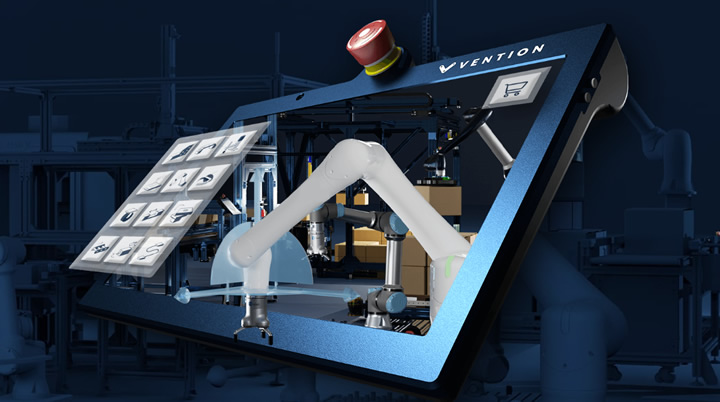Foundations for Success In Industrial Automation: A Guide for Small to Medium Manufacturers

For the first time, small to medium-sized manufacturers can seamlessly integrate automation into their operations, thanks to recent advancements that have simplified automation technology. This includes, among others, the platforming of industrial automation technology and the introduction of collaborative robots, making automation accessible, safe, and profitable for businesses of this size.
While automation has become increasingly within reach, it can still be overwhelming for many manufacturers. Before starting their first project with the technology, manufacturers must take some essential steps to lay the foundation for success and yield long-term benefits.
Establish a Clear Objective
Before beginning an automation project, there needs to be a clear objective established. This will govern each step of the process from start to finish. The objective should answer all of the following questions to help inform the decision-making process, payback requirements, budget, and overall expectations:
- Why do you want to introduce automation?
- What problem are you trying to solve?
- What outcomes are you looking to achieve?
There are many different reasons why manufacturers choose to automate, including cost savings, process or product quality improvement, increased production throughput, reduced risk of operating injuries, and notwithstanding the ongoing labor shortage.
The objective can be one of the above or a combination of them. Whatever the objective, distribute it early and refer to it often. This will pay off in the long term.
Identify a Technical Champion
At the core of any successful automation initiative is a "technical champion." This individual becomes the driving force behind the project, acting as the conduit between internal and external resources. Armed with automation expertise and hands-on experience, the technical champion collaborates closely with management on budgets, approvals, and processes.
The technical champion will impart their deep technical knowledge to the Advanced Manufacturing Team (more on that below). They’ll work hand-in-hand with employees to be machine operators, complete regular maintenance, de-bug machines, program automation sequences, and more. The technical champion also takes ownership of critical procedural steps, such as the Factory Acceptance Test and Site Acceptance Test, both essential documents to ensure a successful automation project.
Form an Advanced Manufacturing Team
With the technical champion leading the way, it's time to assemble the Advanced Manufacturing Team (AMT). This specialized group, guided by the technical champion, gathers expertise in mechanical design, industrial control, and robotics, into one team. The AMT takes control of the entire automation project, from the initial design to deployment and operation. By bringing automation initiatives in-house under one team, the AMT has a deeper understanding of the company's inner workings and can move faster to deliver a solution. In more complex cases, those AMTs can work with trusted and proven partners who bring complementary expertise.
Gain Support from the Top-Down
No industrial automation project can be successful without management buy-in. Effectively presenting the project to others becomes paramount for securing essential funding, resources, and access. Backing a project with a clearly defined goal and strong AMT enhances expertise, ensuring project success and increasing the prospects of obtaining approval for future endeavors. The technical champion assumes a pivotal role in articulating the benefits and potential of the automation project, garnering crucial support from top-level management.
Embarking on the industrial automation journey demands a thoughtful and systematic approach. By establishing clear objectives, identifying key individuals, building specialized teams, and securing top-level support, organizations can lay the groundwork for successful and sustainable automation projects.
“Foundations for Success In Industrial Automation: A Guide for Small to Medium Manufacturers” is the first of a three-part series on “How to Kickstart Your Automation Journey.” The next article will provide recommendations on choosing what part of your operation to automate first to ensure success.
Comments (0)
This post does not have any comments. Be the first to leave a comment below.
Featured Product

